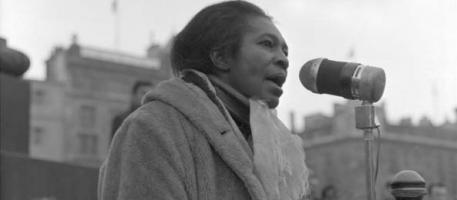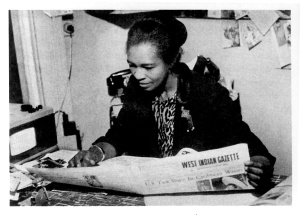There are some incredible and devastating predictions for the future levels of displaced people due to climate change. A recent issue of Forced Migration Review (#31) began to map out these issues in a useful way yet when you look at the range of articles you are left with a sense that this field is struggling to gain a proper framework; a question for a group like ours is on the role for UK artists with an initial UK audience in response to this, and its relationship to other political positions regarding refugee and migrant issues. Issues of resource depletion are directly affecting many originating lands of diaspora communities but the immediate pre-occupations of anti-racist and migrant groups seem to have left them forever on a back-burner. The potential urgency such communities could bring to the debate could be enormous. This project challenges us as politically engaged artists to disentangle, reposition and debate these pressing realities in a public forum.
This blog has just been set up by Kooj from Virtual Migrants (www.virtualmigrants.com), for The Centre Cannot Hold, a non-limited project about Climate Change and Imperialism.
There is a keynote paper by Kooj Chuhan, titled “Tolerating Mass Murder”, outlining our starting points for this investigation. You can read it HERE – comments/discussions are welcome.
An outline of the first stage of this project, currently focused at The Arnolfini in Bristol (UK), is as follows.
‘The Centre Cannot Hold (part 1)‘
by Virtual Migrants
Installation with performances and direct dialogues exploring climate imperialism
THEME / SUBJECT
The project will explore two critical, under-developed, poorly represented and inter-related areas:
(a) the ways in which Climate Change is a continuation of imperialist processes that have been active for a few hundred years. Destruction of human beings along with their environment on a large scale is nothing new, and climate change is perhaps the most sanitised way in which ‘third’ economies will be decimated by the omnipresent culture of greed led by the first economies.
(b) The perceptions of migrant, ‘third sector’ and diaspora people and groups in the UK, particularly of activists, and their counterparts in ‘third’ economies of the world. Active engagement of such groups with climate change particularly in the context of imperialism and racism appears to be embryonic at best, because of other continually pressing issues which are always of higher priority such as more direct racism, immediate survival and resistance. The potential of such groups beginning to discuss such narratives and forming linkages around such issues could be significant. Integrating with perspectives on class inequality and poverty is also critically relevant.
These areas are difficult, and this project will not pretend to be able to create work that is conclusive within this timescale. Rather, Virtual Migrants intends to continue this exploration and discussion over the next few years, with work being produced at various intervals of which the exhibition and events at the Arnolfini will be the first landmark stop on this journey.
FORM – aesthetics
The work will focus on the aesthetics of words, spoken and written, with an emphasis on immediacy and direct connection with the source of those words. Activists will be speaking directly about current situations, ideas, thoughts and activities as a part of the presentations. We want to minimise the amount of interpretation which artists would normally introduce to such work, and allow such non-performers and non-artists to become a part of work with integrated cultural, aesthetic and political meaning.
There are many examples across the world throughout history where popular consumption of words, both of their depth of meaning as well as of their beauty, has been an essential part of cultures which can more easily be critical and engage in discussion. Our approach is to encourage directness, anti-packaging, and active engagement with rather than passive consumerism of such narratives.
We intend to use musical and digital visuals to create audio-visual environments that reflect both historical and contemporary sensibilities, rhythms, and contexts in which these direct narratives can be enriched. These will inevitably be simple and complex at the same time, and will continually change and evolve during the period of installation.





